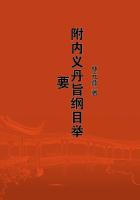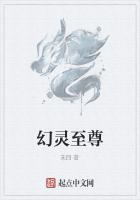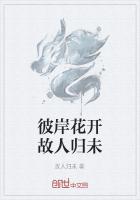The softening of the brain which ultimately overtook him was not a physical accident. If Nietzsche had not ended in imbecility, Nietzscheism would end in imbecility. Thinking in isolation and with pride ends in being an idiot. Every man who will not have softening of the heart must at last have softening of the brain.
This last attempt to evade intellectualism ends in intellectualism, and therefore in death. The sortie has failed. The wild worship of lawlessness and the materialist worship of law end in the same void.
Nietzsche scales staggering mountains, but he turns up ultimately in Tibet. He sits down beside Tolstoy in the land of nothing and Nirvana. They are both helpless--one because he must not grasp anything, and the other because he must not let go of anything.
The Tolstoyan's will is frozen by a Buddhist instinct that all special actions are evil. But the Nietzscheite's will is quite equally frozen by his view that all special actions are good; for if all special actions are good, none of them are special.
They stand at the crossroads, and one hates all the roads and the other likes all the roads. The result is--well, some things are not hard to calculate. They stand at the cross-roads.
Here I end (thank God) the first and dullest business of this book--the rough review of recent thought. After this I begin to sketch a view of life which may not interest my reader, but which, at any rate, interests me. In front of me, as I close this page, is a pile of modern books that I have been turning over for the purpose--a pile of ingenuity, a pile of futility.
By the accident of my present detachment, I can see the inevitable smash of the philosophies of Schopenhauer and Tolstoy, Nietzsche and Shaw, as clearly as an inevitable railway smash could be seen from a balloon. They are all on the road to the emptiness of the asylum.
For madness may be defined as using mental activity so as to reach mental helplessness; and they have nearly reached it. He who thinks he is made of glass, thinks to the destruction of thought; for glass cannot think. So he who wills to reject nothing, wills the destruction of will; for will is not only the choice of something, but the rejection of almost everything. And as I turn and tumble over the clever, wonderful, tiresome, and useless modern books, the title of one of them rivets my eye. It is called "Jeanne d'Arc," by Anatole France. I have only glanced at it, but a glance was enough to remind me of Renan's "Vie de Jesus."
It has the same strange method of the reverent sceptic. It discredits supernatural stories that have some foundation, simply by telling natural stories that have no foundation. Because we cannot believe in what a saint did, we are to pretend that we know exactly what he felt. But I do not mention either book in order to criticise it, but because the accidental combination of the names called up two startling images of Sanity which blasted all the books before me.
Joan of Arc was not stuck at the cross-roads, either by rejecting all the paths like Tolstoy, or by accepting them all like Nietzsche.
She chose a path, and went down it like a thunderbolt. Yet Joan, when I came to think of her, had in her all that was true either in Tolstoy or Nietzsche, all that was even tolerable in either of them.
I thought of all that is noble in Tolstoy, the pleasure in plain things, especially in plain pity, the actualities of the earth, the reverence for the poor, the dignity of the bowed back.
Joan of Arc had all that and with this great addition, that she endured poverty as well as admiring it; whereas Tolstoy is only a typical aristocrat trying to find out its secret. And then I thought of all that was brave and proud and pathetic in poor Nietzsche, and his mutiny against the emptiness and timidity of our time.
I thought of his cry for the ecstatic equilibrium of danger, his hunger for the rush of great horses, his cry to arms. Well, Joan of Arc had all that, and again with this difference, that she did not praise fighting, but fought. We KNOW that she was not afraid of an army, while Nietzsche, for all we know, was afraid of a cow.
Tolstoy only praised the peasant; she was the peasant. Nietzsche only praised the warrior; she was the warrior. She beat them both at their own antagonistic ideals; she was more gentle than the one, more violent than the other. Yet she was a perfectly practical person who did something, while they are wild speculators who do nothing.
It was impossible that the thought should not cross my mind that she and her faith had perhaps some secret of moral unity and utility that has been lost. And with that thought came a larger one, and the colossal figure of her Master had also crossed the theatre of my thoughts. The same modern difficulty which darkened the subject-matter of Anatole France also darkened that of Ernest Renan.
Renan also divided his hero's pity from his hero's pugnacity.
Renan even represented the righteous anger at Jerusalem as a mere nervous breakdown after the idyllic expectations of Galilee.
As if there were any inconsistency between having a love for humanity and having a hatred for inhumanity! Altruists, with thin, weak voices, denounce Christ as an egoist. Egoists (with even thinner and weaker voices) denounce Him as an altruist.
In our present atmosphere such cavils are comprehensible enough.
The love of a hero is more terrible than the hatred of a tyrant.
The hatred of a hero is more generous than the love of a philanthropist.
There is a huge and heroic sanity of which moderns can only collect the fragments. There is a giant of whom we see only the lopped arms and legs walking about. They have torn the soul of Christ into silly strips, labelled egoism and altruism, and they are equally puzzled by His insane magnificence and His insane meekness.
They have parted His garments among them, and for His vesture they have cast lots; though the coat was without seam woven from the top throughout.















